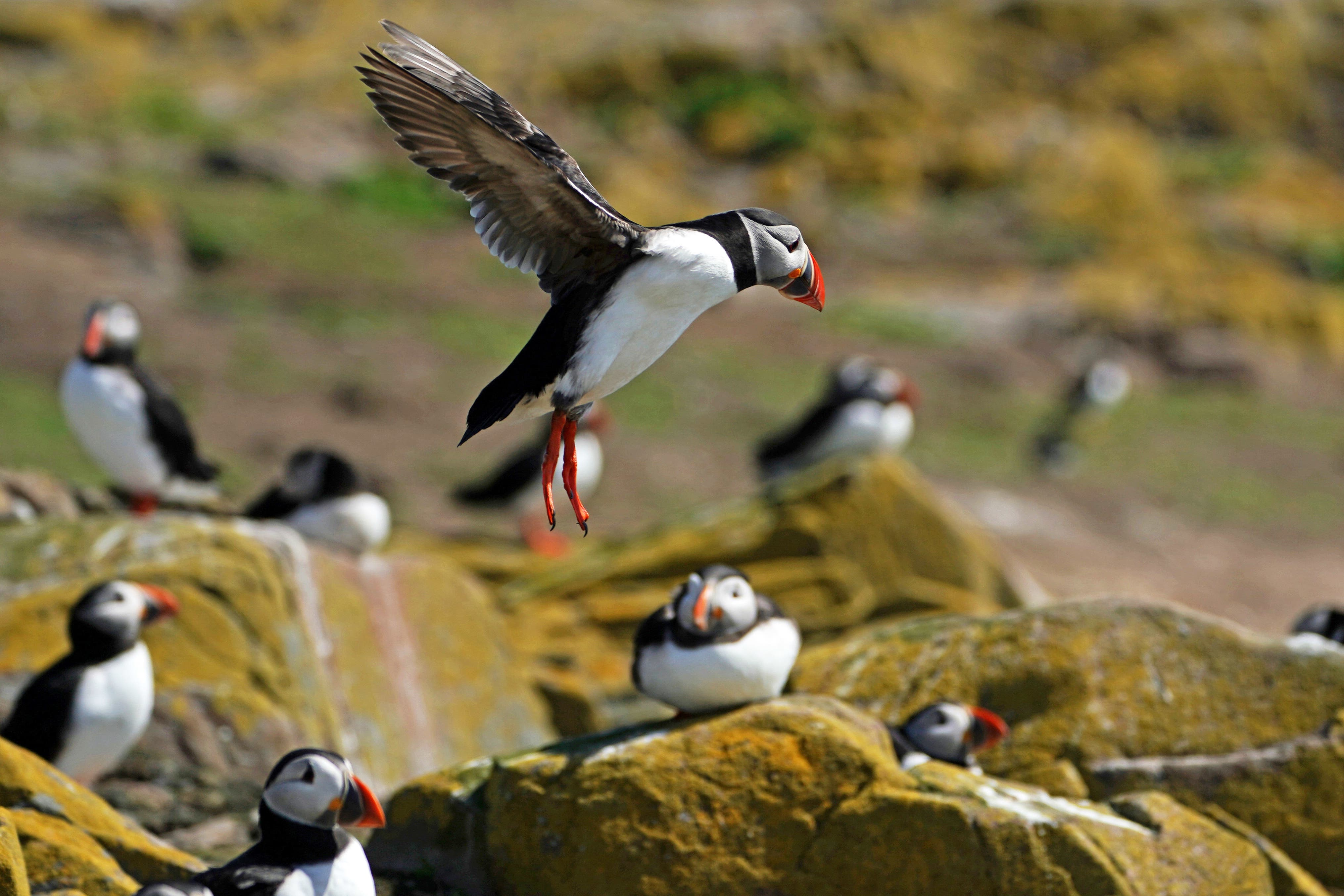Seabird colony to reopen to public after two-year closure due to avian flu
The Farne Islands off the Northumberland coast are a haven for puffins, terns and kittiwakes.

Your support helps us to tell the story
From reproductive rights to climate change to Big Tech, The Independent is on the ground when the story is developing. Whether it's investigating the financials of Elon Musk's pro-Trump PAC or producing our latest documentary, 'The A Word', which shines a light on the American women fighting for reproductive rights, we know how important it is to parse out the facts from the messaging.
At such a critical moment in US history, we need reporters on the ground. Your donation allows us to keep sending journalists to speak to both sides of the story.
The Independent is trusted by Americans across the entire political spectrum. And unlike many other quality news outlets, we choose not to lock Americans out of our reporting and analysis with paywalls. We believe quality journalism should be available to everyone, paid for by those who can afford it.
Your support makes all the difference.An internationally-important seabird colony which shut to human visitors for two years due to bird flu is reopening this week.
Wildlife watchers will be able to get a closer look at the Farne Islands off the Northumberland coast where 200,000 seabirds make their home.
Visitors have been restricted from going ashore for the past two years after an outbreak of avian flu which killed at least 6,000 birds in 2022 and around 3,650 last year.
The lower number of deaths has given experts some hope that the colony had developed some kind of immunity.
The last two years have been really tough, but we are keeping everything crossed that the birds are starting to build natural resilience to bird flu
Now, the first migrating seabirds are beginning to return to the islands to breed. They will depart once their chicks are fully fledged, at the end of the summer.
Visitors, who have only been able to watch from boats for the past two years, were due to be welcomed back on Monday, but poor weather meant there were no sailings from Seahouses.
The National Trust manages the Farnes with wildlife rangers looking after the puffins, terns, kittiwakes and other species.
Sophia Jackson, area ranger for the National Trust, said: “The last two years have been really tough, but we are keeping everything crossed that the birds are starting to build natural resilience to bird flu.
“We will continue to closely monitor the birds for signs of the disease over the coming weeks, in the hope that we can remain open for the whole season.
“But the health of our precious seabirds has to be our priority, so we do have a ‘closure plan’ that we’ll implement, should bird flu return.”
Inner Farne is the only island to open to visitor landings this year while the National Trust trials limited opening.